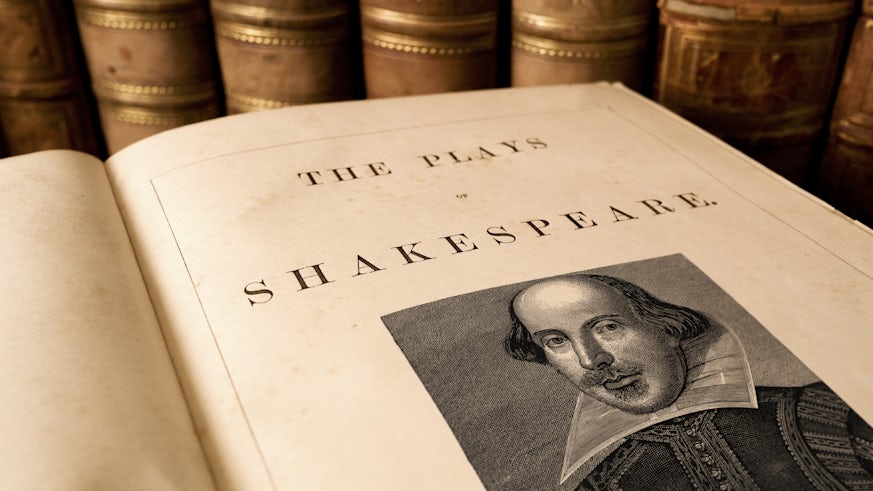How prayer shaped Shakespeare
22 April 2016

Exactly 400 years after Shakespeare’s death, new research from Cardiff University will explore how learning to write prayer shaped the world’s greatest dramatist.
Private Prayer in Shakespeare’s Histories will look at how the world’s greatest playwright mastered his trade by learning to write prayers.
The new project, led by Dr Ceri Sullivan from the University’s School of English, Communication and Philosophy will explore prayer as the most widely practised form of creative writing during Shakespeare's working life, in the reigns of Queen Elizabeth I and King James I, from around 1580 to 1620.
Dr Sullivan said: “The Protestant Reformation demanded that every single adult was trained in, and practised, composing his or her own prayers. Every day, laymen and women developed dramatic skills and unknowingly acquired literary skill in characterisation, counter-factual narratives, and in striking verbal forms such as the soliloquy. Playwrights gleefully seized on this novel expertise in their audience.
“Shakespeare’s histories, in particular, are concerned with prayers which explore alternative outcomes to the course of events unfolding on stage. Conversely, many private prayers from the period centre on the same emotions as his plays do: revenge, jealousy and love.”
To complete the ground-breaking project, Dr Sullivan will take up fellowships at the universities of Cambridge (Centre for Research into the Arts, Social Sciences and Humanities) and Oxford (St. Catherine’s College) this year and a Leverhulme Trust Research Fellowship in 2017.
Explaining what she hopes to reveal, Dr Sullivan said: “These prayers throw light on what states of mind Shakespeare was exploring, and how he might have expected them to be acted. Through Private Prayer in Shakespeare’s Histories I hope to be able to draw out a vocabulary about creativity from discussions of set and inspired prayer.”
The Welsh scholar, whose career began as a banking analyst in the city, before stints in Africa with NGOs, is currently reading hundreds of private prayer-books, both printed and manuscript, in her bid to uncover texts detailing how people like Shakespeare prayed.
Shakespeare died in 1616, on the date widely considered his birthday, 23 April.